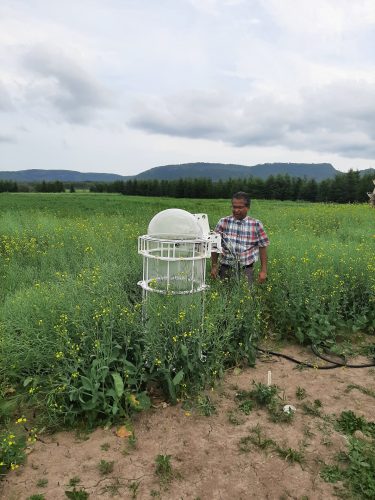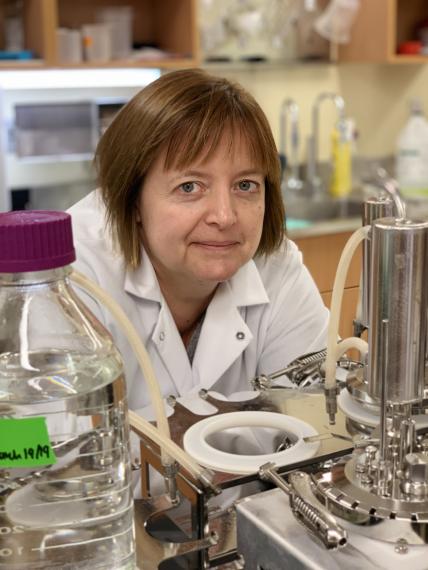
Breakthroughs in gut microbiome research by one University of Guelph molecular microbiologist are reshaping how scientists understand and treat disease, with new possibilities for improving health and wellness. This research is uncovering how microbial communities in the human gut influence conditions like colorectal cancer, diabetes, and inflammatory bowel disease – paving the way for new diagnostics and microbial-based therapies.
At the centre of this research is “Robogut,” an artificial gut model that allows microbes to grow under realistic conditions. This innovative tool helps researchers test how diet, chemicals, and microbial changes affect gut health, translating lab findings into real-world applications. Beyond human health, the lab’s collaborations extend to projects like the Canadian Bee Gut initiative, which applies microbiome science to strengthen pollinator health and agricultural sustainability.
Harnessing microbes holds promise for health and environmental restoration. Beneficial strains can be used as probiotics, while others show potential in bioremediation – breaking down harmful substances like plastics and toxic chemicals, offering sustainable solutions to reduce environmental damage.
For more information, visit University of Guelph.



